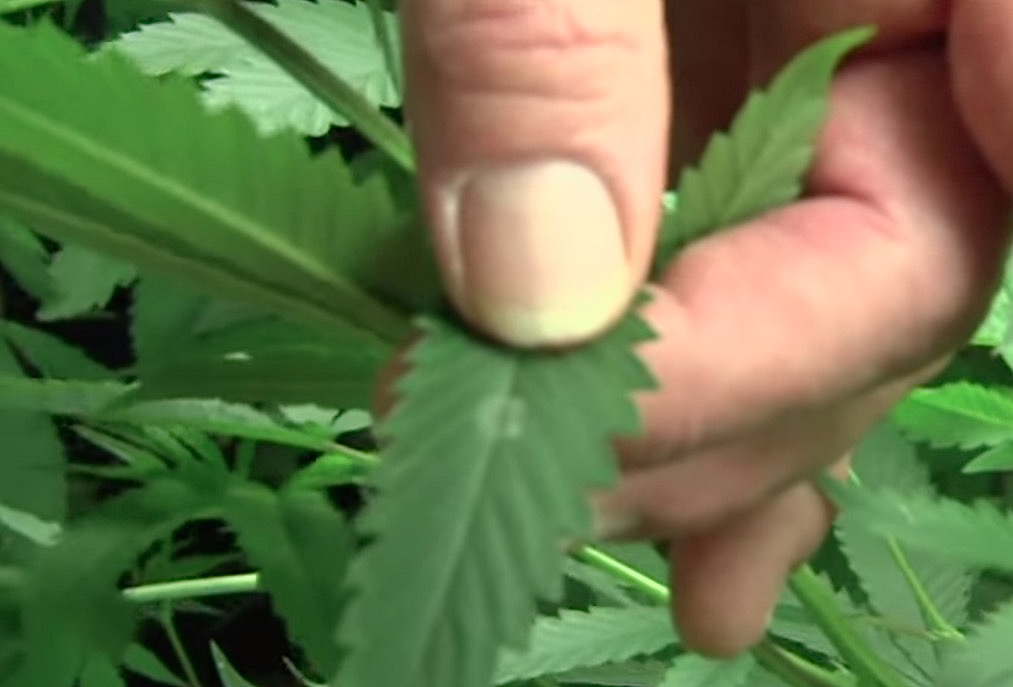With pesticide concerns growing, get ready for organic marijuana surge


As marijuana crops move out of the shadows and into large growing warehouses in Colorado, Washington, and elsewhere, growers are running into a problem faced by all farmers of large, single crops: pests and disease. And many growers are turning to a popular agricultural solution, The Associated Press reports: pesticides and fungicides. The problem is that since pot has long been illegal, and is still illegal under federal law, nobody knows which pesticides are safe for a plant you smoke, eat, or rub on your skin.
Recent investigations in Oregon and Colorado found unapproved pesticides on commercial marijuana buds and in other byproducts, or pesticide residue above legal limits. One fungicide commonly used on cannabis plants, Eagle 20 EW, is regularly used on crops like grapes and hops, but it is considered toxic when burned and is banned in tobacco, for example.
You can watch more about the mites and blight that can wipe out entire marijuana crops, and what Colorado and other states plan to do about it, in the video below. But the obvious solution is organic, pesticide-free, possibly artisanal weed. You can already buy purportedly organic marijuana buds and byproducts, but as Boulder Weekly points out, many of the growers busted for alleged pesticide abuse last month claim to be organic. So far, there is no organization that certifies organic pot, and few people test weed for pesticides. Yet.
The Week
Escape your echo chamber. Get the facts behind the news, plus analysis from multiple perspectives.

Sign up for The Week's Free Newsletters
From our morning news briefing to a weekly Good News Newsletter, get the best of The Week delivered directly to your inbox.
From our morning news briefing to a weekly Good News Newsletter, get the best of The Week delivered directly to your inbox.
"The misuse of that word [organic] in this industry is pretty astounding," John Chandler, an organic horticulturalist, tells Boulder Weekly. "Consumers just don't realize how much pesticide use there really is." When they do, expect demand to rise for certified organic marijuana. Peter Weber
A free daily email with the biggest news stories of the day – and the best features from TheWeek.com
Peter has worked as a news and culture writer and editor at The Week since the site's launch in 2008. He covers politics, world affairs, religion and cultural currents. His journalism career began as a copy editor at a financial newswire and has included editorial positions at The New York Times Magazine, Facts on File, and Oregon State University.
-
 How the ‘British FBI’ will work
How the ‘British FBI’ will workThe Explainer New National Police Service to focus on fighting terrorism, fraud and organised crime, freeing up local forces to tackle everyday offences
-
 The best family hotels in Europe
The best family hotels in EuropeThe Week Recommends Top kid-friendly hotels with clubs, crèches and fun activities for children of all ages – and some downtime for the grown-ups
-
 Moon dust has earthly elements thanks to a magnetic bridge
Moon dust has earthly elements thanks to a magnetic bridgeUnder the radar The substances could help supply a lunar base
-
 TikTok secures deal to remain in US
TikTok secures deal to remain in USSpeed Read ByteDance will form a US version of the popular video-sharing platform
-
 Unemployment rate ticks up amid fall job losses
Unemployment rate ticks up amid fall job lossesSpeed Read Data released by the Commerce Department indicates ‘one of the weakest American labor markets in years’
-
 US mints final penny after 232-year run
US mints final penny after 232-year runSpeed Read Production of the one-cent coin has ended
-
 Warner Bros. explores sale amid Paramount bids
Warner Bros. explores sale amid Paramount bidsSpeed Read The media giant, home to HBO and DC Studios, has received interest from multiple buying parties
-
 Gold tops $4K per ounce, signaling financial unease
Gold tops $4K per ounce, signaling financial uneaseSpeed Read Investors are worried about President Donald Trump’s trade war
-
 Electronic Arts to go private in record $55B deal
Electronic Arts to go private in record $55B dealspeed read The video game giant is behind ‘The Sims’ and ‘Madden NFL’
-
 New York court tosses Trump's $500M fraud fine
New York court tosses Trump's $500M fraud fineSpeed Read A divided appeals court threw out a hefty penalty against President Trump for fraudulently inflating his wealth
-
 Trump said to seek government stake in Intel
Trump said to seek government stake in IntelSpeed Read The president and Intel CEO Lip-Bu Tan reportedly discussed the proposal at a recent meeting
